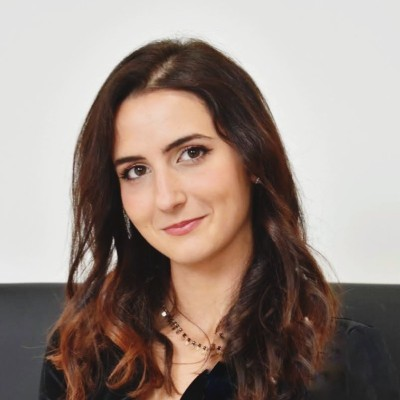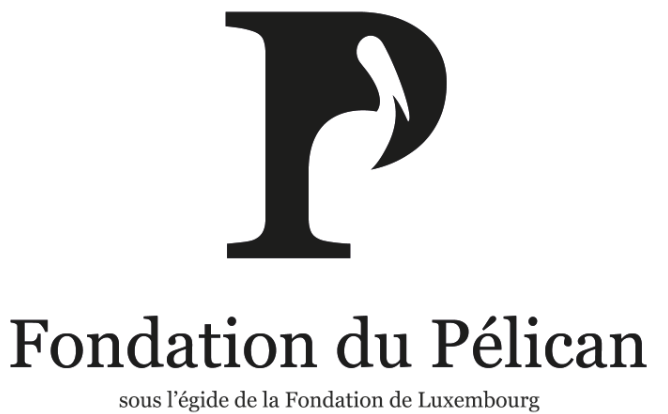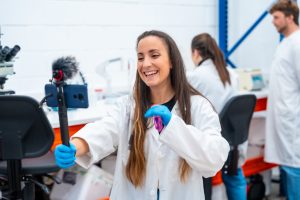To support their research in the field of biomedicine, the Fondation du Pélican de Mie et Pierre Hippert-Faber have recently awarded eight doctoral students affiliated with the Programme in Systems and Molecular Biomedicine at the University of Luxembourg. Thanks to this support, they will be able to carry out additional experiments, participate in conferences and workshops or plan short-term stays abroad.
Here are the eight awardees:

Doctorate Thesis: “Development of new approach methodologies (NAMs) for ethical and sustainable safety assessment of chemicals
and materials”.
Use of the grant: Nour will be able to buy different materials to carry out experiments. She will also spend three months at the Swiss Federal Laboratories for Materials Science and Technology.

Doctorate Thesis: “Improving cancer immunotherapy by
targeting the tumor microenvironment”.
Use of the grant: Elisabetta will attend the American Association for Cancer Research (AACR) Annual Meeting 2026 in San
Diego, USA.

Doctorate Thesis: “ “Digital Mobility Outcomes in Parkinson Disease”.
Use of the grant: Francesca will spend a 3-month research stay in MaD Lab in Erlangen, Germany and participate in the MDS Conference 2026 in Seoul, Korea.

Doctorate Thesis: “Deconvolution of complex molecular signals
of metabolomics and transcriptomics for predicting drug sensitivity and therapy resistance in malignant melanoma”.
Use of the grant: Maryna will spend a 1-month research stay at the Metabolism and Therapeutic Resistance in Acute Myeloid Leukemia (METAML) laboratory of Prof. Jean-Emmanuel Sarry in Toulouse, France

Doctorate Thesis: “Finding new treatments for drug resistent
hepatocellular carcinoma in physiologically relevant 3D in vitro models”.
Use of the grant: Dzeneta will spend a 6-week research stay in UKW Würzbug, Germany and participate in EU Function A about Mouse
Training.

Doctorate Thesis: “Reciprocal effects of intrinsic tumor immune
resistance and the tumor microenvironment”.
Use of the grant: Wanxin will spend a 1.5-month research stay in Tübingen, Germany.

Doctorate Thesis: “Characterization of the role of the
Metalloproteinase ADAM17 in contributing to Alzheimer’s disease”.
Use of the grant: Lena will attend the Alzheimer’s Research UK Conference 2026, Manchester and the EMBL course “Data-driven approaches to understanding dementia” in EMBL’s European Bioinformatics Institute Hinxton. In addition, she will spend a 4-month research stay in Mattheu Freeman Group and Sally Cowley group in Oxford, UK.

Doctorate Thesis: “Involvement of Innate Immunity in
Neurodegenerative Disease”.
Use of the grant: Hilmi will spend a 4-month research stay in Kuopio, Finland and will attend the Society for Neuroscience (SfN) Conference, Washington.
About the Fondation du Pélican

The Fondation du Pélican de Mie et Pierre Hippert-Faber was founded in 2010 by Pierre Hippert and is managed by the Fondation de Luxembourg. The foundation seeks to provide long-term support in the field of scientific and academic research, as well as in the area of the arts and letters. In particular, the foundation finances research projects at the University of Luxembourg by giving scholarships and/or purchasing equipment in biomedicine in order to promote research activities in Luxembourg and develop the reputation of the University in this field.
Each year, the Fondation du Pélican awards a number of doctoral candidates affiliated with the programme in systems and molecular biomedicine of the Doctoral School in Science and Engineering (DSSE) at the University of Luxembourg. The Pelican grant can be used to finance their research. It can cover additional experiments, travel expenses to participate in conferences and training workshops, as well as short-term stays abroad as part of research collaborations.
